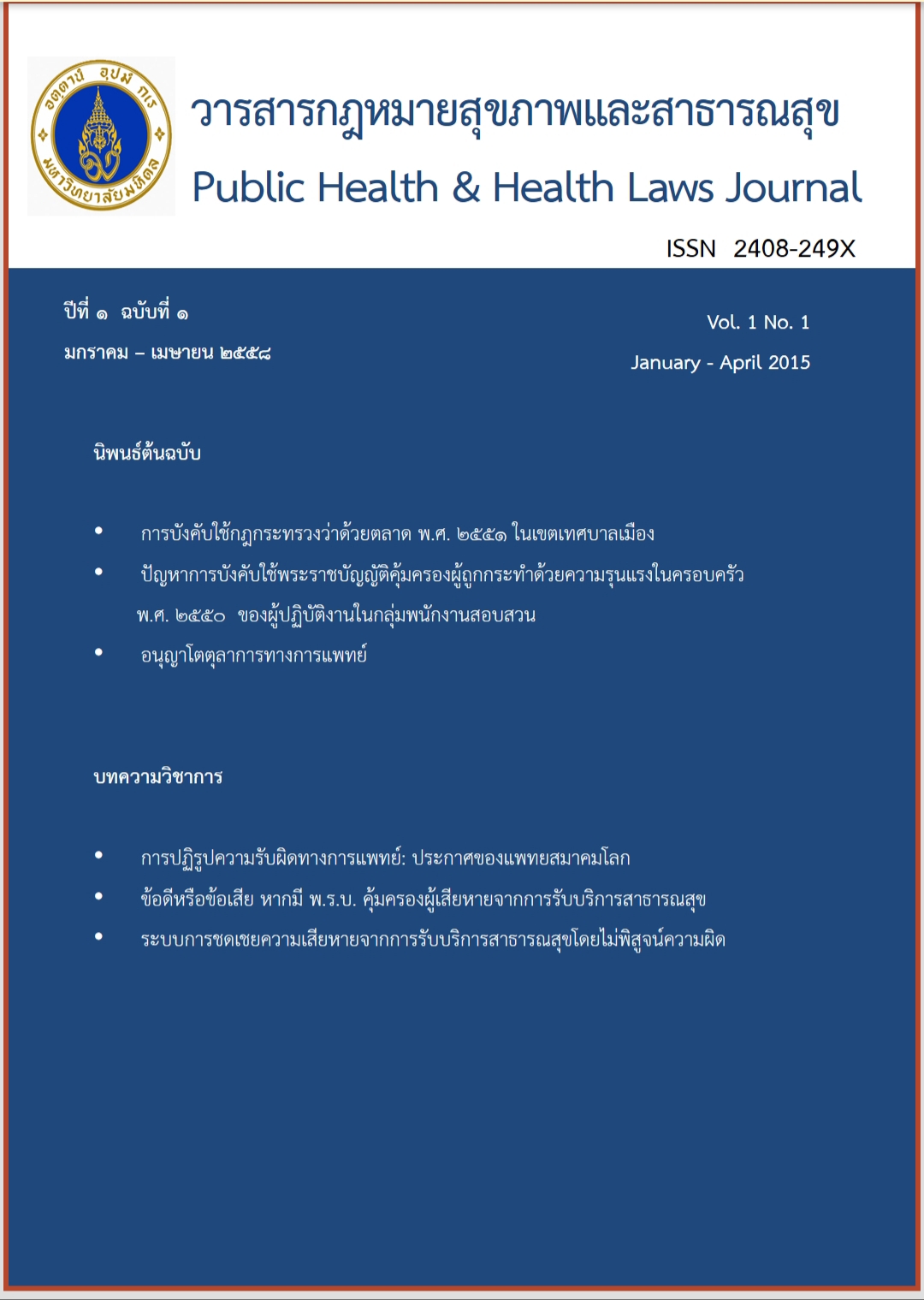ร่างพระราชบัญญัติคุ้มครองผู้เสียหายจากการรับบริการสาธารณสุข: วิเคราะห์ข้อดีหรือข้อเสีย
Keywords:
Conciliation ; Draft law for patient’s protection due to damage from public health service providerAbstract
This article aims to show advantages and disadvantages, if Thailand passes a law on Medical Treatment Compensation Act, B.E…… According to the principle of patient’s protection from public health services, it was found that the draft law has a good principle. If any damages occur, despite causing by negligence, it is not necessary to contest in the court of law. When the compensation is provided, the dispute should have ended on the basis of mutual sympathy. The draft law makes health agency to use mediation mechanism instead of litigation in court. If the dispute leads to criminal charges against another party, the court of justice can exercise its discretion to reduce the sentence, or waive the penalty for public health personnel. For private hospitals which do not agree with the draft law, they are not forced to participate in the program, because this will cause all parties to object the draft law. This draft law should be applied for civil servants, social security health members, and universal health coverage program members. For private sector, it should be a matter of voluntarily participating in the program.
References
ร่างพระราชบัญญัติคุ้มครองผู้เสียหายจากการรับบริการสาธารณสุข พ.ศ. (ฉบับที่คณะกรรมการกฤษฎีกา)
แสวง บุญเฉลิมวิภาส, (2554). “ปัญหาการฟ้องร้องทางการแพทย์และแนวทางแก้ไข”,จุลสาร สมาคมนิติศาสตร์ มหาวิทยาลัยธรรมศาสตร์ 8, 3 (พ.ค.-มิ.ย. 2554): 47-58.
Downloads
Published
How to Cite
Issue
Section
License
Disclaimer and Copyright Notice
The content and information presented in articles published in the Journal of Law and Public Health Policy represent the opinions and sole responsibility of the respective authors. The editorial board does not necessarily agree with or assume any responsibility for the views expressed.
All articles, data, content, images, and other materials published in the Journal of Law and Public Health Policy are the intellectual property of the journal. Any individual or organization wishing to reproduce, distribute, or otherwise use the entirety or any part of such materials must provide proper citation.





